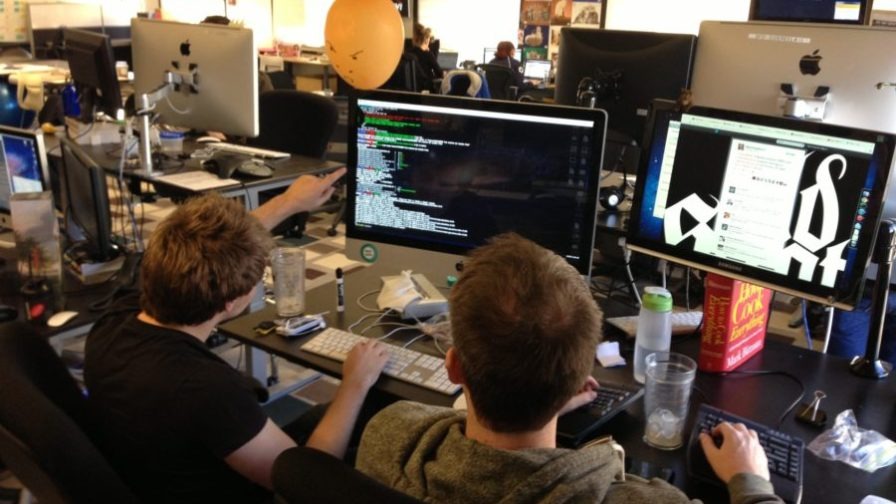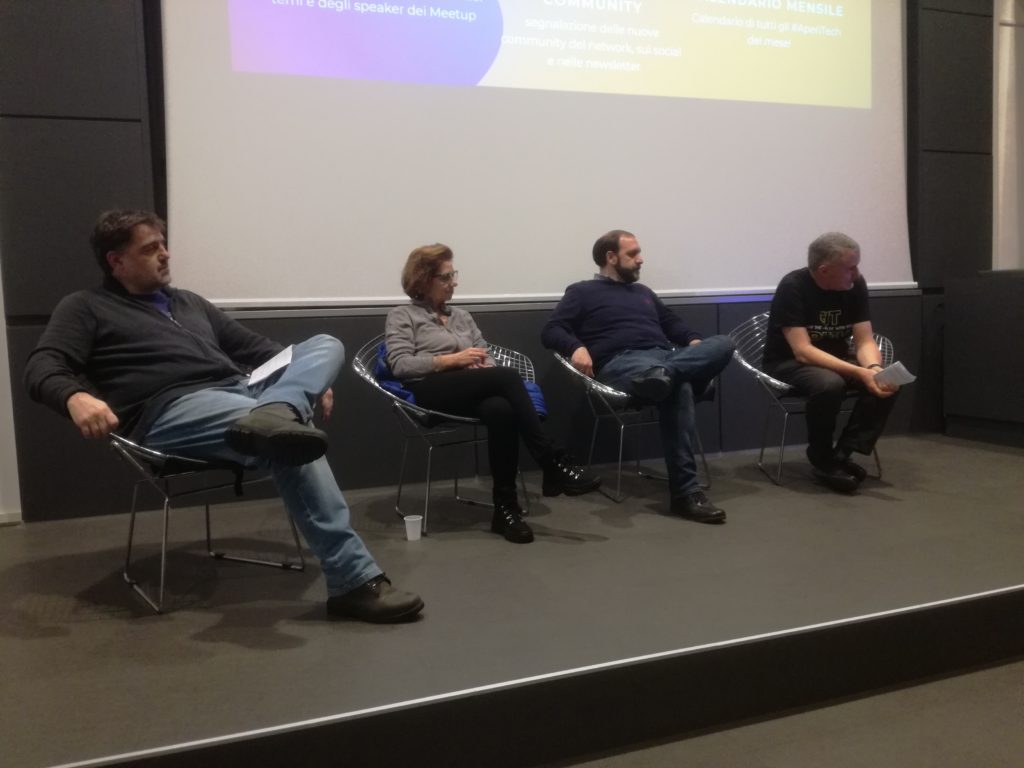
Careers in developing must be approached from a planning perspective. This is a complex task that becomes even more so in the world of software developers. Taking a strong basic foundation and knowledge of languages for granted, continuous updating of expertise, generation of opportunities and risk management become crucial to maintaining skills and relevance.
Codemotion is aimed at developers and therefore deals regularly with career building. Wanting to take this further, the organization developed a meet-up event with an innovative format, asking themed questions of four experts – all well known in Italian coding communities – gathered on a single stage. Massimo Sarti, an agile coach coming from the world of software development, directed questions to Antonella Blasetti, who was a programmer in the days of the mainframe and subsequently a manager at IBM, Senior Consultant Arnaldo Morena, and Luca Congiu, Senior Solution Architect at Almaviva.

This article delves into the first section, which focused on the life cycle of a software developer’s career.
Developer Careers: Market, Passion, and Opportunity
“How do you think about your next career step?“. Given the topic of the meet-up, Massimo Sarti’s first question is an obvious one. The answers can be summarized as “Market, Passion, and Opportunity” – the ideal triptych for the shrewd coder.
“Look at the market and you will have many years’ work ahead of you,” says Arnaldo Morena, whose strength lies in direct customer activities. “The next challenge is the one that gives you so many years of programming.” Beyond that, a lot depends on the overall conditions, he explains, for example: “today I wouldn’t engage in artificial intelligence algorithms”.
Antonella Blasetti seeks passion, individuality and insider groups. “In the transmission of information, communities are very important, while blogs and social media are very smoky”.
Luca Congiu knows that opportunities can come from simply working towards them: “if you work hard, opportunities are created and you may choose the one you like best,” he says. “Your next professional step comes from yourself.”
Is it better to become a manager?
One possible evolution in a career as a developer is to become a manager. It is an economically intriguing possibility because managers are usually paid better than coders. Here is the direct question: “to continue on its trajectory, does the coder have to become a manager?”.
“To remain a coder you must be always up to date, while if you rise in rank this requirement is much less stringent”, explains Congiu, whose own career models one likely phase in individual evolution.
“At IBM you could also move into sales, and in Germany, good technicians are paid like managers”, smiles Blasetti. But returning to the question, “if you start as a developer and become a manager, you must try to stay in the technical field: in that case, you see things better and really advance your career. But the process is terrifying: “you have weaker developers under you and the temptation to take their place is very strong, while your role is to make them grow”.
Morena raises some well-founded doubts: “What if I feel like being the coolest coder? What if I don’t get the chance to be a manager?” What would your answer be?
Old wise owl
Are careers in development fairly evaluated? In brief, “is the coder underestimated or underpaid?”. “In Rome, yes, in Milan a little less,” says Antonella Blasetti; “abroad – and I’m talking about Germany, Holland and the United States – no”.
Luca Congiu underlines the professional aspect. “We need to tell companies to let their coders update: I often personally call companies that don’t want to send their staff to technical community meetings.” They need to go to meet-ups. “Only by meeting other professionals does the coder understand the market and where he and his company belong.” Companies often don’t understand this – they only understands employee control.
And is there a gender salary gap? “It seems to me there is,” Congiu replies. “Often, more than pink quotas, there are blue quotas!”, he jokes, noting the presence of a greater number of women than men, “but men’s wages seem slightly higher”.
Can anything be done to improve the situation? The answer is clear: “managers suck, they are inadequate”, Antonella Blasetti replies; “they should be trained!”.
Is there also an age problem? “In our work, experience is 90%, even if a younger person has more energy”, points out Arnaldo Morena. “Starting a project with a young coder is not a good thing: a good coder is one who does not have anything to prove, and knows how to follow the customer with minimal effort”.
“There was an interesting saying: junior coder, simple code; intermediate coder, complex code; senior coder, simple code”, Antonella Blasetti adds. “In the cloud, then, the code is a liability – let’s program as little as possible; make your code scalable and always active”.
Developer Careers: Italy or abroad?
Even the world of software does not escape this question. Our experts, although they are continually in contact with colleagues and situations abroad, have mostly remained in Italy.
Massimo Sarti takes the floor: “I lived in London for three years and I can say that Italian coders are appreciated for their promptness and creativity – qualities that the British don’t have, on average”. With Brexit, some hidden differences are emerging: “In Italy, there will be more opportunities,” Arnaldo Morena suggests; “it’s growing – not as much as in other places perhaps, but there is growth”. For Morena, one should not uproot lightly.
“Programmers for the cloud and remote work are increasingly in demand”, Antonella Blasetti confirms; “development is there”. “Experience abroad helps and has to be done,” Luca Congiu concludes; “experience with different cultures, the problems of language and environment raise the level of individual growth”.




